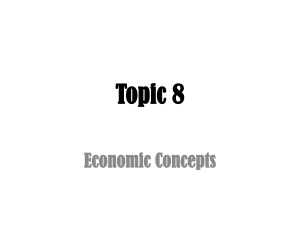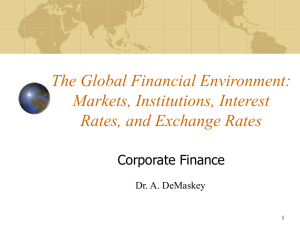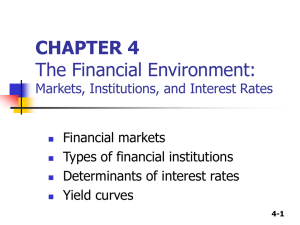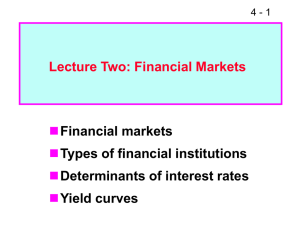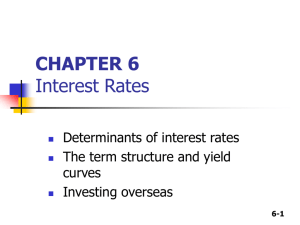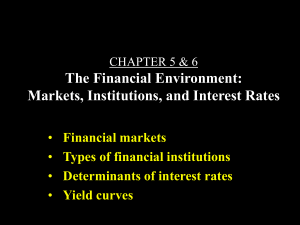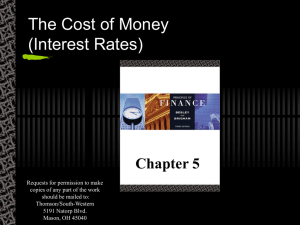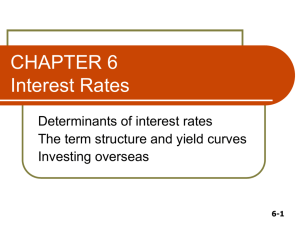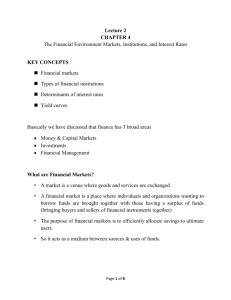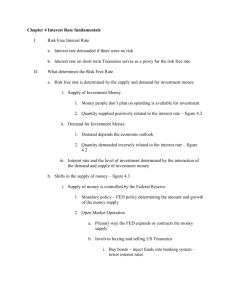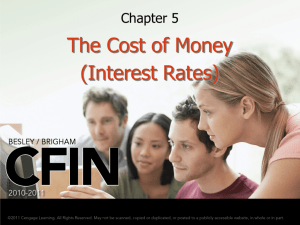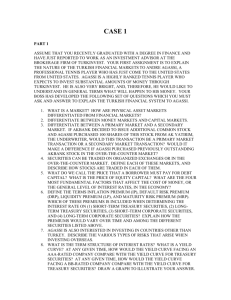Ch 06
advertisement
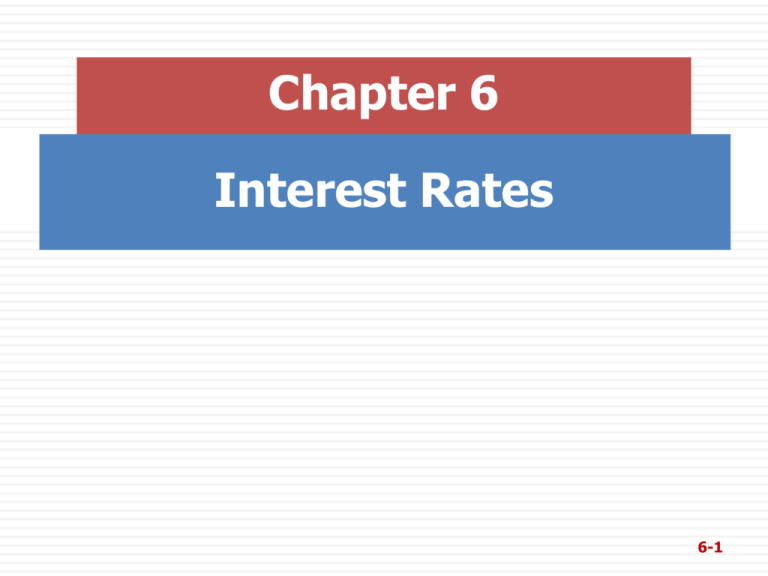
Chapter 6 Interest Rates 6-1 What four factors affect the level of interest rates? Production opportunities Time preferences for consumption Risk Expected inflation 6-2 “Nominal” vs. “Real” Rates r = represents any nominal rate r* = represents the “real” risk-free rate of interest. Like a T-bill rate, if there was no inflation. Typically ranges from 1% to 5% per year. rRF = represents the rate of interest on Treasury securities. 6-3 Determinants of Interest Rates r = r* + IP + DRP + LP + MRP r r* IP DRP LP MRP = = = = = = required return on a debt security real risk-free rate of interest inflation premium default risk premium liquidity premium maturity risk premium 6-4 Yield Curve and the Term Structure of Interest Rates Interest Term structure – relationship between interest rates (or yields) and maturities. The yield curve is a graph of the term structure. 14% March 1980 12% 10% 8% February 2000 6% 4% October 2008 2% 0% 0 10 20 30 Years to Maturity 6-5 Hypothetical Yield Curve Interest Rate (%) 15 Maturity risk premium 10 Inflation premium 5 Real risk-free rate 0 1 10 An upward sloping yield curve. Upward slope due to an increase in expected inflation and increasing maturity risk premium. Years to Maturity 20 6-6 Pure Expectations Hypothesis The PEH contends that the shape of the yield curve depends on investor’s expectations about future interest rates. If interest rates are expected to increase, L-T rates will be higher than S-T rates, and viceversa. Thus, the yield curve can slope up, down, or even bow. 6-7 Assumptions of the PEH Assumes that the maturity risk premium for Treasury securities is zero. Long-term rates are an average of current and future short-term rates. If PEH is correct, you can use the yield curve to “back out” expected future interest rates. 6-8 An Example: Observed Treasury Rates and the PEH Maturity 1 year 2 years 3 years 4 years 5 years Yield 6.0% 6.2% 6.4% 6.5% 6.5% If PEH holds, what does the market expect will be the interest rate on one-year securities, one year from now? Three-year securities, two years from now? 6-9 One-Year Forward Rate 6.0% 0 x% 1 2 6.2% (1.062)2 = (1.060) (1 + X) 1.12784/1.060 = (1 + X) 6.4004% = X PEH says that one-year securities will yield 6.4004%, one year from now. Notice, if an arithmetic average is used, the answer is still very close. Solve: 6.2% = (6.0% + X)/2, and the result will be 6.4%. 6-10 Three-Year Security, Two Years from Now 6.2% 0 1 x% 2 3 4 5 6.5% (1.065)5 = (1.062)2 (1 + X)3 1.37009/1.12784 = (1 + X)3 6.7005% = X PEH says that three-year securities will yield 6.7005%, two years from now. 6-11 Conclusions about PEH Most evidence supports the general view that lenders prefer S-T securities, and view L-T securities as riskier. Thus, investors demand a premium to persuade them to hold L-T securities (i.e., MRP > 0). 6-12 Macroeconomic Factors That Influence Interest Rate Levels Federal reserve policy Federal budget deficits or surpluses International factors Level of business activity 6-13
